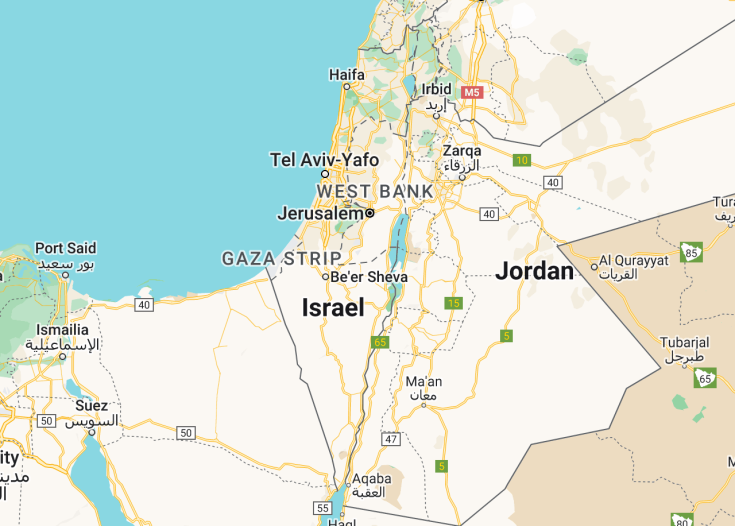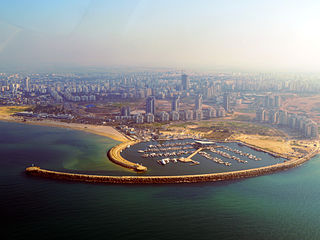Israel, a geographically diverse country located in the Middle East, offers a captivating blend of ancient history, religious significance, and modernity. From the historic streets of Jerusalem to the vibrant beaches of Tel Aviv, Israel appeals to travelers seeking cultural exploration, stunning landscapes, and culinary delights. Discover the sacred sites of the Old City, float in the healing waters of the Dead Sea, or embark on an adventure through the Negev Desert. With its rich history and diverse attractions, Israel is a destination that never fails to leave a lasting impression.
Explore Jerusalem’s Old City and immerse yourself in its religious significance.
Tip: Ensure you are dressed modestly and follow the customs when visiting religious sites.
Israel: A Unique Blend of History and Culture
| Capital | Jerusalem |
| Time in Israel | GMT+3:00 |
| Language spoken | Hebrew |
| Population | 9,053,300 (source: World Bank) |
| Religion | Judaism (74.7%) Islam (17.7%) Christianity (1.3%) Druze (1.6%) Other religions (4.7%) |
| Currency | Israeli Shekel (₪, ILS) |
| Airports | Ben Gurion International Airport Sde Dov Airport Ovda Airport |
Israel, a vibrant and diverse country, is a captivating travel destination. From its ancient historical sites to its bustling modern cities, Israel offers visitors a unique blend of history and culture. With its rich heritage and religious significance, Israel attracts millions of tourists each year.
Where is Israel located?
Israel is located in the Middle East, on the southeastern shore of the Mediterranean Sea. It is bordered by Lebanon to the north, Syria to the northeast, Jordan to the east, and Egypt to the southwest. The country also shares the Dead Sea with Jordan.
What is Israel famous for?
Israel is famous for its historical and religious sites, including the Western Wall and the Dome of the Rock in Jerusalem, which are significant to Judaism, Christianity, and Islam. The ancient city of Masada, a UNESCO World Heritage Site, offers stunning views and a glimpse into the country’s past. Israel is also known for its innovative technology and contributions to various fields, such as medicine and agriculture.
History
The history of Israel dates back thousands of years, beginning with the arrival of various ancient civilizations in the region. The land of Israel has been a significant center for political, cultural, and religious activities throughout history. Here, we highlight some of the important periods that shaped the history of Israel.
Prehistory – Bronze Age
Israel’s early history is intertwined with that of the neighboring civilizations such as the Canaanites, Egyptians, and Philistines. The area saw the rise and fall of various city-states and kingdoms, leaving behind archaeological artifacts and ruins that offer glimpses into the past.
Iron Age – Babylonian Exile
During the Iron Age, Israel emerged as a distinct political entity under the united monarchy of King David and his successors. The Kingdom of Israel thrived until it was eventually conquered by the Assyrians and later the Babylonians. This period also witnessed major religious developments, including the construction of the First Temple in Jerusalem.
Persian Rule – Roman Period
After the Babylonian Exile, Israel came under the control of various foreign powers, including the Persians, Greeks, and Romans. These periods saw cultural exchanges, conflicts, and religious reformation, with the construction of the Second Temple in Jerusalem by the returning exiles.
Byzantine – Early Islamic Period
The Byzantine era witnessed the Christianization of the region, with churches and monasteries being constructed across Israel. However, the arrival of Islam in the 7th century significantly transformed the political and religious landscape of the area. The Caliphate controlled Jerusalem and built the Dome of the Rock on the Temple Mount.
Crusader – Ottoman Rule
During the Crusades, Jerusalem became a focal point of conflict between Christians and Muslims. The Crusaders established their kingdoms in the region, but their rule was eventually crushed by Saladin and the Muslim forces. Later, the Ottoman Empire took control and ruled Israel until the early 20th century.
British Mandate – Modern State
Following the collapse of the Ottoman Empire after World War I, the British controlled the area under a League of Nations mandate. Out of this period of British rule emerged increased Jewish immigration, Zionist movements, and tensions between Jewish and Arab communities. Eventually, in 1948, the State of Israel was established, marking a significant turning point in the history of the region.
Visit Israel
What to see and do in Israel
Israel offers a diverse range of attractions for visitors to explore and experience. Here are some of the must-see places and activities:
- Visit the historic city of Jerusalem, including the Western Wall, Church of the Holy Sepulchre, and the Dome of the Rock.
- Explore the ancient ruins of Masada and the Dead Sea region, known for its unique salty waters and therapeutic mud.
- Discover the vibrant city of Tel Aviv, famous for its beaches, modern architecture, and thriving nightlife.
- Take a dip in the Mediterranean Sea and relax on the beautiful beaches of Haifa and Netanya.
- Visit the ancient city of Caesarea, known for its Roman amphitheater, archaeological park, and beautiful coastline.
- Explore the natural wonders of the Negev Desert, including the stunning landscapes of the Ramon Crater and Timna Park.
- Visit the unique and picturesque town of Safed, known for its narrow lanes, art galleries, and ancient synagogues.
Events in Israel
Israel hosts several events throughout the year, celebrating religious traditions, cultural heritage, and modern arts. Some of the prominent events include:
- The Jerusalem Light Festival (June) – A dazzling display of light installations and performances throughout the streets of Jerusalem.
- The Tel Aviv Pride Parade (June) – One of the largest LGBTQ+ pride parades in the world, featuring vibrant celebrations and support for diversity.
- The Jewish High Holidays (September/October) – A significant time for religious observances, including Rosh Hashanah (Jewish New Year) and Yom Kippur (Day of Atonement).
- Eilat Jazz Festival (August) – A popular music festival attracting local and international jazz musicians and enthusiasts.
- Hanukkah (December) – Celebrated with the lighting of the menorah, traditional foods, and festive activities throughout the country.
These events offer visitors a chance to immerse themselves in the rich culture and traditions of Israel, while also enjoying modern entertainment and artistic expressions.
Best time to visit Israel
The best time to visit Israel is during the spring (April to May) and autumn (September to November) seasons. The weather is pleasantly mild, making it ideal for outdoor activities and sightseeing. The spring season also coincides with the Jewish holiday of Passover, when the country is vibrant with celebrations and cultural events. However, the summer months (June to August) can be hot, especially in the desert regions, while the winter season (December to February) can be cooler, particularly in the northern areas. It’s important to consider these factors and plan accordingly based on your preferences and the activities you wish to engage in.
Is Israel worth visiting?
Israel is definitely worth visiting for those interested in exploring rich historical sites, experiencing diverse cultures, and enjoying breathtaking landscapes. The country offers a unique blend of ancient history and modern vibrancy. From the religious significance of Jerusalem to the vibrant city life of Tel Aviv, Israel has something for every traveler. However, it’s important to keep in mind that the region has its own share of political complexities and occasional security concerns. It’s advisable to stay informed, follow travel advisories, and plan your visit accordingly. Ultimately, if you have a keen interest in history, culture, and the Middle East, a visit to Israel can be a truly enriching experience.

















